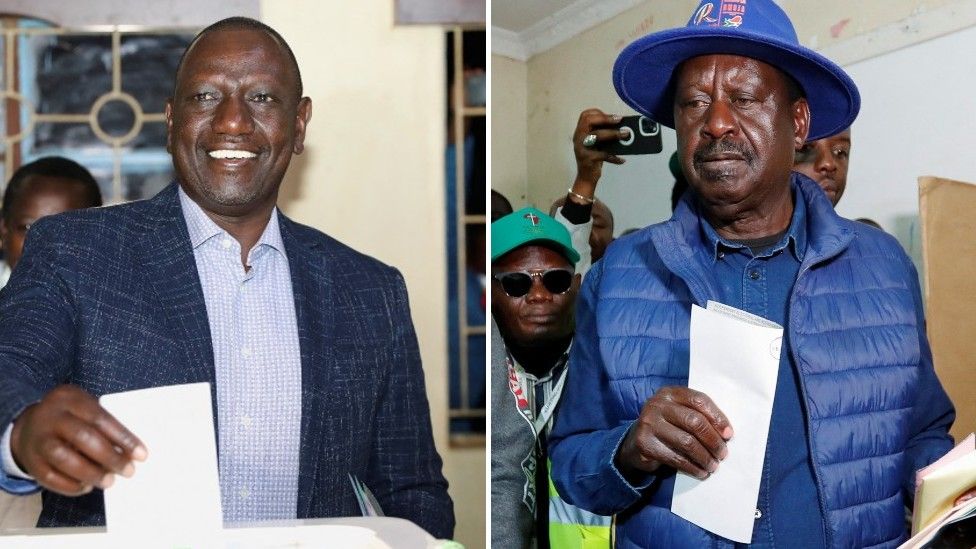The official results of the presidential election were unanimously affirmed by the Kenya Supreme Court, on Monday, September 5, which also unanimously rejected objections to William Ruto’s victory.
The generally peaceful election on August 9 in Kenya was marred by last-minute drama when the electoral commission divided and traded charges of misconduct, according to opposition candidate Raila Odinga, who claimed there were irregularities.
The court deemed some of the assertions to be “little more than hot air” and found little to no support for them. It also questioned why the four opposing commissioners took part in the vote-counting procedure until the very end, which they had criticised as being untransparent.
The court noted that the commission “requires far-reaching reforms,” but asked, “Are we to annul an election based on a last-minute boardroom rupture?”
Shock Pronouncement
After Odinga filed a challenge, the court startled Kenyans in the previous election in 2017 by annulling the results of the presidential election, a first in Africa, and ordering a new poll. He afterward abstained from the fresh election.
Read Also: No Threat Issued To 2023 General Elections — IGP Assures Nigerians
In the most recent instance of shifting political alliances in East Africa’s most stable democracy, Odinga was supported this time by his erstwhile opponent and outgoing President Uhuru Kenyatta.
Odinga’s camp claimed that the Kenya electoral commission’s equipment had been hacked, that the voting results had been manipulated, and that the electoral commission chair had virtually acted alone in announcing the winner.
Odinga’s team questioned an election seen as the country’s most transparent, with results from tens of thousands of polling stations posted online within hours of the vote for Kenyans to follow the tally themselves. Such reforms were in part the result of Odinga’s previous election challenge.
Now Kenyans wait to see whether any anger over the election will be channeled into the streets in a country with a history of sometimes deadly political violence. The election had one of the lowest turnouts in the country’s history of multiparty democracy, under 65%.
The 77-year-old Odinga, who has pursued the presidency for a quarter-century, has indicated he would accept the court’s decision.
The 55-year-old Ruto, who had a bitter split with Kenyatta after Kenyatta made peace with Odinga to calm the 2017 election crisis, had appealed to Kenyans by portraying himself as a “hustler” from humble beginnings against the “dynasties” of Kenyatta and Odinga, whose fathers were Kenya’s first president and vice president.
Ruto now faces the challenge of finding the money to back up his campaign promises to the poor, as Kenya’s debt levels are now nearly 70% of its GDP.

